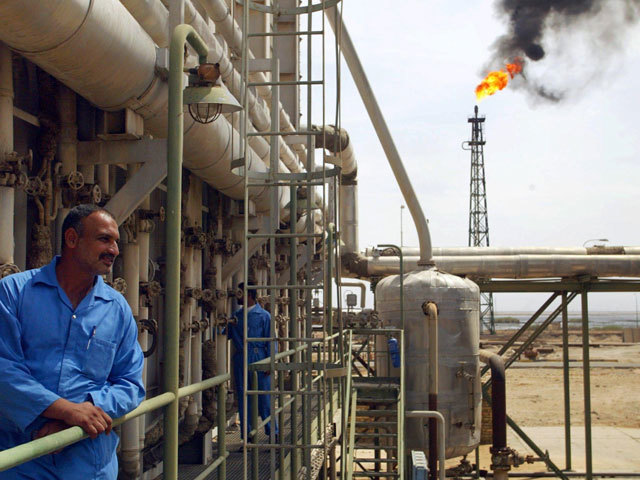
Iraq, OPEC’s second-biggest producer, will increase crude exports by about 5 percent in the next few days after an agreement to resume shipments from three oil fields in Kirkuk.
Shipments will increase to about 150,000 barrels a day as exports resume from the Baba Gorgor, Jambour and Khabbaz fields, Fouad Hussein, a member of the oil and energy committee of the Kirkuk provincial council, said by phone Sunday. Iraq’s exports were 3.71 million barrels a day in July, according to the International Energy Agency. Calls to the Kurdistan Regional Government for comment weren’t answered and text messages weren’t immediately returned.
Iraq has struggled to boost oil exports this year after a payments dispute with the Kurds in the north and interruptions to the flow of oil through a pipeline to Turkey. Iraq’s Prime Minister Haidar Al-Abadi ordered the oil ministry to resume oil pumping into the Kurdish pipeline to Ceyhan, Turkey, to boost Iraqi revenue, the deputy oil minister Fayyad Al-Nima said last week.
“Pumping operations started with test pumping at 70,000 barrels a day last Thursday and the Northern Oil Co. aims to boost it to its normal rate at 150,000 barrels a day this week,” Hussein said. “This is a good step and significant initiative to strengthen relations between KRG and the federal government.”
Last week, new oil minister Jabbar al-Luaibi said he saw ways to resolve the dispute with the self-governed Kurds. The three oil fields are operated by the state-run Northern Oil Co. but their route to market runs through KRG territory. The NOC halted exports from those fields in March after an agreement between the central government and the KRG fell through.
The Kirkuk-Ceyhan pipeline was exporting about 600,000 barrels a day of crude under the previous export agreement, including 150,000 barrels from the NOC’s fields. It carried 457,000 barrels a day in July from KRG-operated fields, according to information on the KRG website. Exports in February and March were lower due to damage to a section of the pipeline in Turkey.
Control of Kirkuk’s oil is split between the central government and the KRG. The Kurds control two oil fields in the province, Bai Hassan and Avana, which export about 150,000 barrels a day.
Iraq, the second-biggest producer in the Organization of Petroleum Exporting Countries, holds the world’s fifth-largest oil reserves. The drop in crude prices over the past two years has squeezed state revenue at the same time when the government waged a costly campaign against Islamic State militants, who have seized parts of northern Iraq. The country was producing 4.78 million barrels a day in July compared with 4.44 million at the end of last year, according to data compiled by Bloomberg and Iraq’s oil ministry.
